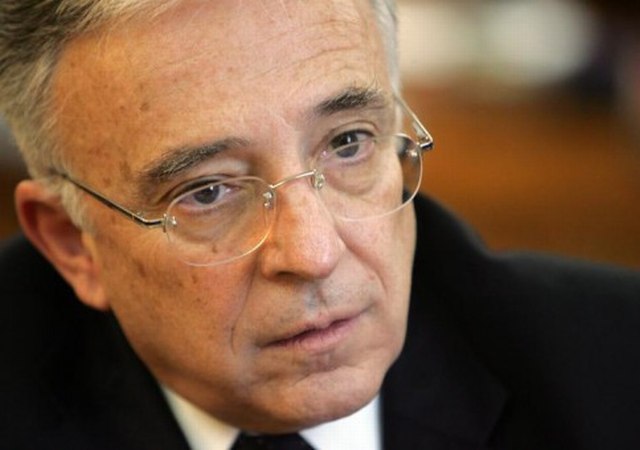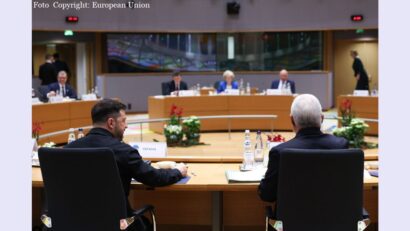The National Bank of Romania in the current economic context
The governor of the National Bank of Romania, Mugur Isarescu, said that Romania is doing well from a macroeconomic point of view but that there are many dangers threatening its economic and financial stability.

România Internațional, 16.03.2016, 13:49
Romania is now at a crossroads, said the governor of the National Bank of Romania, Mugur Isarescu, launching a new warning related to the dangers that might threaten the country’s economic and financial stability. The central bank governor made this assessment at a conference regarding the country’s development strategy, regionalization and the adoption of the euro.
Isarescu has drawn attention that the prospect of an increased budget deficit of almost 4% of the GDP in 2017 threatens the macroeconomic stability Romania has so difficultly reached in the past years and consequently the convergence of the Romanian economy with the Euro zone. In his opinion, if efforts are not made to preserve the advantages obtained in the past years, Romania’s economy risks stagnating and even distancing itself from the Euro zone.
The central bank governor pointed out that it was essential to preserve what was obtained after the 2008 financial crisis and insisted on legislative stability. Mugur Isarescu: “We must be realistic. Personally, I have never seen in these past 25 years greater dangers than now threatening Romania’s economic and financial stability. The country needs legislative stability in order to encourage investments”.
Governor Isarescu said the country’s current economic growth is based on internal consumption and less on exports, the investments in infrastructure being very reduced, which prevents Romania’s regional development. He said the GDP would be higher if the country had an improved infrastructure.
Attending the conference, the technocratic PM Dacian Cioloş said, in turn, that 2016 was an election year, which involves risks of irresponsible spending of the public money. He said the Government wanted to reduce public money waste and to improve the quality of governance. The PM also said that the Government intended to pass more measures to support those economic sectors with potential for growth such as agriculture and small rural enterprises, tourism, energy, communications and IT, research and innovation and the creative domains.
Dacian Cioloş: “First of all we want to define our targets more clearly and accurately, the direction we want to follow. We need to identify the key elements that define a common vision. Then we have to find out what we need to reach our targets, which are the key development factors, such as education, science and research, healthcare and the infrastructure.”
Another short and medium term objective of the Government is to boost the efficiency of state-owned companies, with the Economy Ministry having already started a program meant to change these companies’ management. The government also focuses on the development of small urban and rural areas.






























